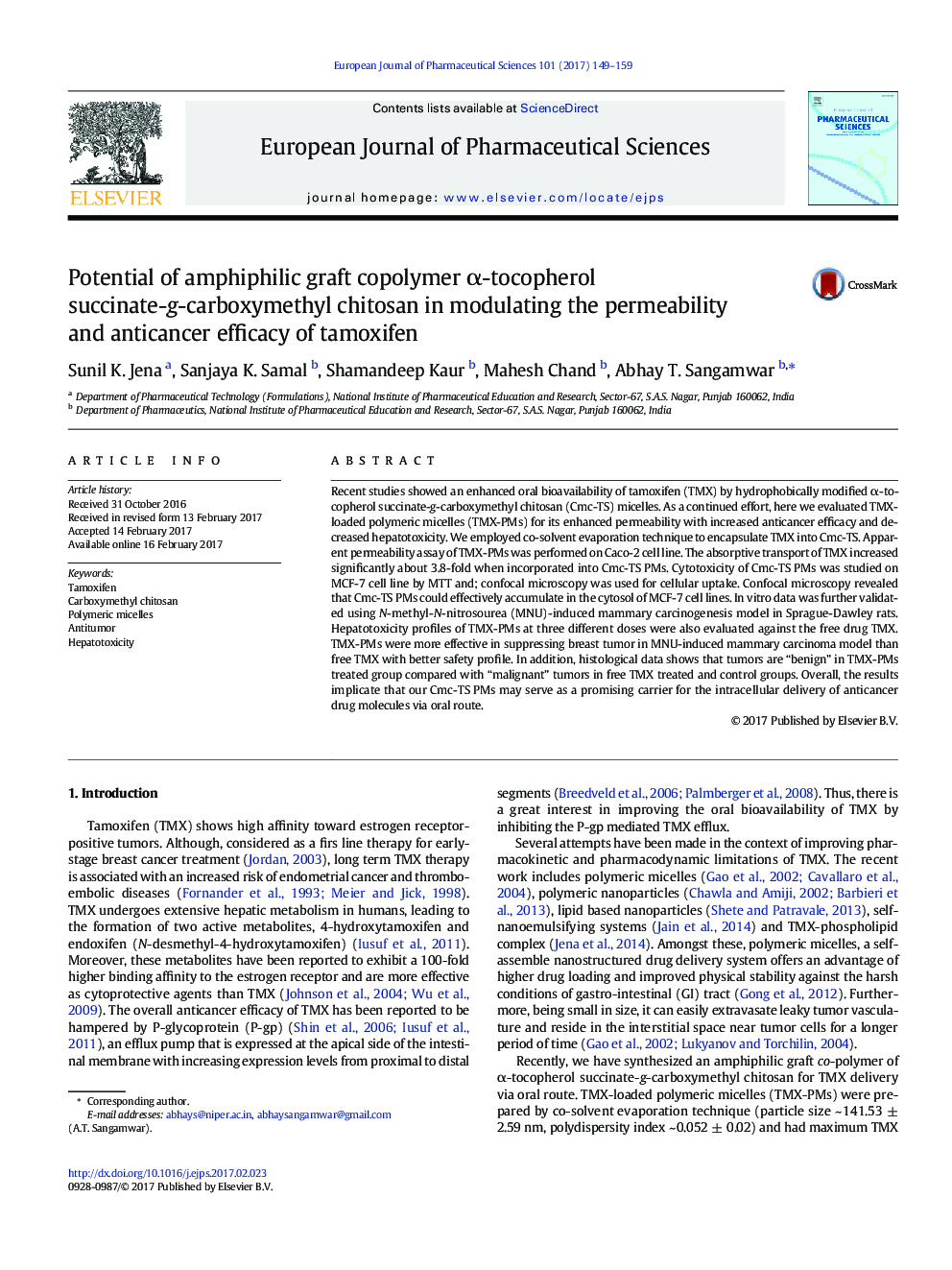| Article ID | Journal | Published Year | Pages | File Type |
|---|---|---|---|---|
| 5547667 | European Journal of Pharmaceutical Sciences | 2017 | 11 Pages |
Recent studies showed an enhanced oral bioavailability of tamoxifen (TMX) by hydrophobically modified α-tocopherol succinate-g-carboxymethyl chitosan (Cmc-TS) micelles. As a continued effort, here we evaluated TMX-loaded polymeric micelles (TMX-PMs) for its enhanced permeability with increased anticancer efficacy and decreased hepatotoxicity. We employed co-solvent evaporation technique to encapsulate TMX into Cmc-TS. Apparent permeability assay of TMX-PMs was performed on Caco-2 cell line. The absorptive transport of TMX increased significantly about 3.8-fold when incorporated into Cmc-TS PMs. Cytotoxicity of Cmc-TS PMs was studied on MCF-7 cell line by MTT and; confocal microscopy was used for cellular uptake. Confocal microscopy revealed that Cmc-TS PMs could effectively accumulate in the cytosol of MCF-7 cell lines. In vitro data was further validated using N-methyl-N-nitrosourea (MNU)-induced mammary carcinogenesis model in Sprague-Dawley rats. Hepatotoxicity profiles of TMX-PMs at three different doses were also evaluated against the free drug TMX. TMX-PMs were more effective in suppressing breast tumor in MNU-induced mammary carcinoma model than free TMX with better safety profile. In addition, histological data shows that tumors are “benign” in TMX-PMs treated group compared with “malignant” tumors in free TMX treated and control groups. Overall, the results implicate that our Cmc-TS PMs may serve as a promising carrier for the intracellular delivery of anticancer drug molecules via oral route.
Graphical abstractA novel amphiphilic graft copolymer α-tocopherol succinate-g-carboxymethyl chitosan was synthesized for enhancing the anticancer efficacy of tamoxifen with increased safety profile.Download high-res image (121KB)Download full-size image
